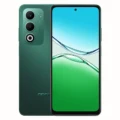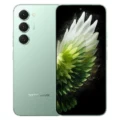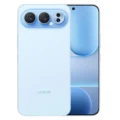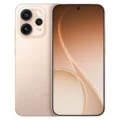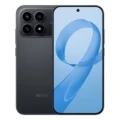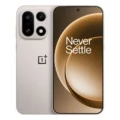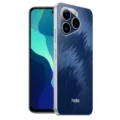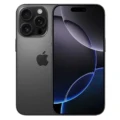- Home
- Products
- Compare
- Oppo A5 4G vs Tecno Spark 40 Pro – Who is the best at 20,000?
Oppo A5 4G vs Tecno Spark 40 Pro - Who is the best at 20,000?
If your budget is 20,000 Taka and you want to buy an official smartphone, then let’s see which of these two smartphones would be the best for you:
In Bangladesh, at just 20,000 Taka officially, you will find smartphones from Oppo and Tecno. We’ll compare their performance to see which one is better.
- First difference: If you want more RAM, the Tecno Spark 40 Pro offers 8GB, while the Oppo A5 4G offers 6GB.
- Second difference: Tecno Spark 40 Pro has IP64, while Oppo A5 4G has IP65, so in terms of water safety, Oppo A5 4G is ahead.
- Third difference (Display): Tecno Spark 40 Pro comes with AMOLED, 144Hz, 439ppi, while Oppo A5 4G offers IPS LCD, 90Hz, 264ppi. In this aspect, Tecno Spark 40 Pro is ahead.
- Camera: Oppo A5 4G is ahead because it has a dual 50+2MP setup, while Tecno Spark 40 Pro has a single 50MP main camera but a 13MP selfie camera.
- Battery: Oppo A5 4G is ahead again with a 6000mAh battery plus 45W + 33W + 13.5W charging, while Tecno Spark 40 Pro has a 5200mAh battery with 45W charging.
Price in BD
|
Official
|
6GB+128GB - 19,990 TK
8GB+128GB - 19,999 TK |
General Info
|
Announced
|
15 May, 2025
2 July, 2025 |
|
Status
|
Available
Available |
|
Released
|
14 August, 2025
7 July, 2025 |
|
Brand
|
Oppo
Tecno |
|
Model
|
A5 4G
Spark 40 Pro |
|
Made By
|
China
China |
Network
|
Technology
|
GSM / HSPA / LTE
GSM / HSPA / LTE |
|
2G bands
|
GSM 850 / 900 / 1800 / 1900
GSM 850 / 900 / 1800 / 1900 |
|
3G bands
|
HSDPA 800 / 850 / 900 / 1700(AWS) / 1900 / 2100 - version 1
HSDPA 850 / 900 / 2100 - version 2
HSDPA 900 / 2100 - version 3
HSDPA 900 / 2100 |
|
4G bands
|
1, 2, 3, 4, 5, 7, 8, 12, 13, 17, 18, 19, 26, 28, 38, 40, 41, 66 - version 1
1, 3, 5, 7, 8, 20, 28, 38, 40, 41 - version 2
1, 3, 5, 8, 40 - version 3
LTE |
|
Speed
|
HSPA, LTE
HSPA, LTE |
Body
|
Dimensions
|
165.7 x 76.2 x 8 mm (6.52 x 3.00 x 0.31 in)
163.7 x 75.9 x 6.7 mm (6.44 x 2.99 x 0.26 in) |
|
Weight
|
193 g (6.81 oz)
- |
|
SIM
SIM (Subscriber Identity Module) is a small card that contains mobile network subscriber's account information. This allows the phone using the card to attach to a mobile network. The SIM card is most commonly associated with GSM and UMTS mobile networks. Moving a SIM card from one phone to another allows a subscriber to switch mobile phones without having to contact their mobile network carrier. SIM cards can also be used by a phone to store limited amounts of data, such as phone numbers and text messages. |
Nano-SIM + Nano-SIM
Nano-SIM + Nano-SIM |
|
Colors
|
Aurora Green, Mist White
Ink Black, Moon Titanium, Lake Blue, Bamboo Green |
|
IP Rating
|
IP65 dust tight and water resistant (low pressure water jets)
IP64 dust tight and water resistant (water splashes) |
|
Models
|
CPH2727
KM6 |
|
Others
|
MIL-STD-810H compliant*
* does not guarantee ruggedness or use in extreme conditions
|
Display
|
Display Type
Display Technology => A number of display technologies and types used in mobile phones => TFT (Thin Film Transistor), IPS (In-Place Switching), OLED (Organic Light Emitting Diode), AMOLED (Active-Matrix Organic Light-Emitting Diode), Super AMOLED (an even advanced version of AMOLED), Resistive Touchscreen (Resistive touchscreens contain two layer of conductive material with a very small gap between them which acts as a resistance), Capacitive Touchsceen (Capacitive touchscreen technology consists of a layer of glass coated with a transparent conductor) |
IPS LCD
AMOLED |
|
Size
|
6.67 inches, 107.2 cm2
6.78 inches, 111.0 cm2 |
|
Screen to Body
|
~84.9%
|
|
Features
|
1B colors, PWM |
|
Brightness
|
1000 nits (HBM)
|
|
Refresh Rate
|
90Hz
144Hz |
|
Resolution
|
720 x 1604 pixels
1220 x 2712 pixels |
|
Aspect Ratio
|
20:9
20:9 |
|
Pixel Density
Pixel Density (PPI) is refers to the concentration of pixels on a particular display, measured in pixels per inch (ppi). Pixel density is calculated by dividing the diagonal pixel resolution of a display by its diagonal size, higher pixel density better display quality. |
~264 ppi
~439 ppi |
|
Protection
|
Corning Gorilla Glass 7i
|
|
Touch Screen
|
Capacitive Touchscreen, Multi-touch
Capacitive Touchscreen, Multi-touch |
Performance
|
Chipset
Chipset is a group of integrated circuits designed to perform one or a more dedicated functions, often with real time computing constraints, Popular smartphones are equipped with more advanced embedded chipsets that can do many different tasks depending on their programming. |
Qualcomm SM-6115 Snapdragon 6s 4G Gen1 (11 nm)
Mediatek Helio G100 (6 nm) |
|
CPU
CPU (Central Processing Unit) mostly known as processors, CPU processes instructions in order to carry out certain functions that make your device operate properly. Processors are often described as the brain of computers, smartphones and tablets, Smartphones and tablets rely on processors to carry out their every task, Processors are an incredibly important factor in selecting any type of computing device, including your smartphone. |
Octa-core (4x2.1 GHz Cortex-A73 & 4x1.8 GHz Cortex-A53)
Octa-core (2x2.2 GHz Cortex-A76 & 6x2.0 GHz Cortex-A55) |
|
GPU
GPU (Graphics Processing Unit) is a single-chip processor designed to rapidly manipulate and alter memory to accelerate the creation of images in a frame buffer intended for output to a display, This includes things such as lighting effects, object transformations, and 3D motion. |
Adreno 610
Mali-G57 MC2 |
|
OS
|
Android 15
Android 15 |
|
UI
|
ColorOS 15
HIOS 15.1 |
Memory
|
RAM
RAM (Random Access Memory) is a type of computer memory that can be accessed randomly, any byte of memory can be accessed without touching the preceding bytes that allows information to be stored and accessed quickly from random locations. RAM is the most common type of memory found in computer systems, smartphones, tablets and other electronic devices. |
6 GB
8 GB |
|
ROM
|
128 GB
128 GB, 256 GB |
|
Card Slot
Memory Card Slot is a special slot for inserting a memory card. Memory cards allow you to expand the phone's built-in memory, A memory card (sometimes called a flash memory card or a storage card) is a small storage medium used to store data such as text, pictures, audio, and video, for use on small, portable or remote computing devices such as mobile phones, mp3 players, digital cameras. |
Yes, microSDXC
Yes, microSDXC |
|
UFS
|
2.1
|
Main Camera
|
Single
|
50 MP, (wide), PDAF, Auxiliary lens |
|
Dual
|
50 MP, f/1.8, (wide), PDAF
2 MP, f/2.4, (wide)
|
|
Features
|
HDR, panorama
HDR |
|
Flash
Flash Light => There is commonly two types of flash lights are used in camera mobile phones, LED Flash (LED flash offers lower power consumption with drive circuitry that takes up very little room, LEDs can be strobed faster than any other light source), Xenon Flash (xenon flash produces an extremely intense full-spectrum white light for a very short duration) |
LED flash
Dual-LED flash |
|
Video Recording
|
1080p@30fps
1440p@30fps, 1080p@30fps |
|
Autofocus
|
|
|
Settings
|
Exposure compensation, ISO control
Exposure compensation, ISO control |
|
Zoom
|
Digital Zoom
Digital Zoom |
Selfie Camera
|
Single
|
5 MP, f/2.2, (wide)
13 MP, (wide) |
|
Features
|
Panorama
|
|
Flash
Flash Light => There is commonly two types of flash lights are used in camera mobile phones, LED Flash (LED flash offers lower power consumption with drive circuitry that takes up very little room, LEDs can be strobed faster than any other light source), Xenon Flash (xenon flash produces an extremely intense full-spectrum white light for a very short duration) |
Dual-LED flash |
|
Video Recording
|
1080p@30fps
1080p@30fps |
Sound
|
Loudspeaker
|
|
|
3.5mm jack
|
|
|
Others
|
24-bit/192kHz Hi-Res & Hi-Res Wireless audio |
Connectivity
|
WLAN
Wi-Fi is a popular wireless networking technology using radio waves to provide high-speed network connections that allows devices to communicate without cords or cables, Wi-Fi is increasingly becoming the preferred mode of internet connectivity all over the world. |
Wi-Fi 802.11 a/b/g/n/ac, dual-band
Wi-Fi 802.11 a/b/g/n/ac, dual-band |
|
Bluetooth
Bluetooth is a wireless communications technology for exchanging data between mobile phones, headsets, computers and other network devices over short distances without wires, Bluetooth technology was primarily designed to support simple wireless networking of personal consumer devices. |
5.0, A2DP, LE, aptX
5.3, A2DP, LE |
|
Positioning
|
GPS, GALILEO, GLONASS, BDS, QZSS
GPS |
|
NFC
NFC (Near field communication) is a set of standards for smartphones and similar devices to establish peer-to-peer radio communications with each other by touching them together or bringing them into proximity, usually no more than a few inches. |
|
|
Infrared
Infrared connectivity is an old wireless technology used to connect two electronic devices. It uses a beam of infrared light to transmit information and so requires direct line of sight and operates only at close range. |
|
|
Radio
|
|
|
USB
|
Type-C 2.0, OTG
Type-C |
Sensors
|
Sensors
Sensors are electronic components that detects and responds to some type of input from the physical environment. The specific input could be light, heat, motion, moisture, pressure and location, The output is generally a signal that is converted to use in computing systems, a location sensor, such as a GPS receiver is able to detect current location of your electronic device. |
accelerometer, proximity, compass
accelerometer, gyro, proximity, compass |
|
Fingerprint
|
side-mounted
Under display, optical |
|
Face Unlock
|
Yes
Yes |
Battery
|
Battery Type
Battery Type => Cell phones run on various kinds of batteries depending on the manufacturer, phone size or shape and features. There are basically four types of cell phone batteries => Lithium Polymer, Lithium Ion, Nickel Metal Hydride and Nickel Cadmium. |
Li-Pol (Lithium Polymer)
Li-Pol (Lithium Polymer) |
|
Capacity
Battery Capacity is a measure (typically in Amp-hr) of the charge stored by the battery, and is determined by the mass of active material contained in the battery. The battery capacity represents the maximum amount of energy that can be extracted from the battery under certain conditions. |
6000 mAh
5200 mAh |
|
Charging
|
45W wired, 33W PPS, 13.5W PD
45W wired |
|
Charging Time
|
50% in 36 min
|
Disclaimer Note
We always try our best to keep our website content and information updated and correct, the material and information contained on our website is for general information purposes only, You should not rely upon the material and information as a basis for making any business, legal or any other decisions.


